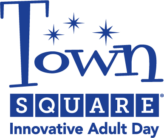Debunking Myths around Dementia Tests
If a physician has recommended you or a loved one get evaluated for signs of Alzheimer’s disease or another form of dementia, you may not know what to expect. It’s common to feel anxious or uncertain about getting tested for dementia, but it’s essential to separate fact from fiction so that you can make informed decisions about your health or the health of your loved ones.
Town Square is a reminiscence-focused adult day enrichment provider dedicated to offering the best possible support for people living with dementia and their families. Read on to learn the truth behind some common dementia testing myths, get in touch with us today to find out more on Town Square, or find a center near you.

Myth 1 - Dementia Tests Are Invasive and Painful
Based on other types of diagnostic tests, it’s easy to assume that medical testing and pain go hand in hand. Dementia testing is generally noninvasive and painless, but unfortunately, the fear of an uncomfortable procedure can make people reluctant to get tested for dementia, leading to delays in diagnosis and treatment.
Most dementia tests are not difficult to undergo. For instance, the Mini-Mental State Examination (MMSE) is a widely used test that involves answering questions and performing simple tasks to assess cognitive function. Other tests, such as brain imaging scans, are also pain-free.
If you feel anxious about the testing process, talk to your healthcare provider about the options and what to expect. They can also provide information on preparing for the test and answer any questions or concerns you or your family members may have.
Remember, early detection can lead to better outcomes. With a proper diagnosis, individuals and their families can access support services, like Town Square offers, that can help manage symptoms and improve quality of life. So don’t let fear hold you or your loved one back from getting tested.
Myth 2 - Dementia Tests Are Only for the Elderly
It’s not only senior citizens who get evaluated for dementia. While age is indeed a risk factor, early-onset dementia (also called young-onset dementia) affects individuals in their 40s, 50s, and early 60s. Other factors that could play into the development of dementia include genetics, high blood pressure, diabetes, alcoholism, smoking, traumatic brain injuries, and more, and these can manifest at a younger age.
Although early-onset dementia represents a small percentage of overall dementia cases (about 5 to 6 percent), the toll it takes on individuals and their loved ones is very high.
Timely diagnosis of dementia is crucial, regardless of age. Talk to your healthcare provider about getting tested if you notice changes in your memory, language, or decision-making abilities. By taking action, you can take the lead on your cognitive health and well-being.
Myth 3 - Dementia Tests Are Not Accurate or Reliable
Are you worried that dementia tests aren’t accurate or reliable? It’s another common misconception, but the truth is that dementia tests are an essential tool for diagnosis and management.
Here are some of the most common types of dementia tests:
- Memory tests: These tests evaluate your memory and ability to recall information.
- Cognitive, functional, and behavioral tests: These tests assess your cognitive abilities, such as your attention, language, and problem-solving skills. Some are quick, while others take longer to complete. Examples include the Functional Activities Questionnaire and Montreal Cognitive Assessment.
- Brain imaging tests: Tests like CT scans and MRIs provide detailed images of the brain to detect any abnormalities or changes. They are typically used to rule out other conditions with similar symptoms to dementia.
While no test is perfect, research has shown that these tests are highly accurate and can help diagnose dementia in its early stages, particularly when used in combination.
If you or a loved one is experiencing cognitive decline or memory loss, seeking medical advice is vital. A healthcare professional can conduct a comprehensive evaluation, review your medical history, and perform any necessary tests to provide an accurate diagnosis.
FAQs
Here are some frequently asked questions about dementia tests you may find helpful in debunking myths and misconceptions:
What Is the 2-Finger Test in Dementia?
The 2-finger test — also called the interlocking finger test — is a quick and simple test. A healthcare professional will move their fingers into a specific position. They might interlock two fingers or rub them together. Then, they will ask the patient to mimic the movement. This helps to determine the patient’s ability to follow and process visual information, understand instructions, and translate that into fine motor actions.
What Is the 3-Word Dementia Test?
The 3-word dementia test, sometimes referred to as the three-word recall test, is a memory test used to assess a person’s ability to remember and recall information. During the exam, the person is asked to remember three randomized words, such as “apple”, “book”, and “chair”. After a short period, usually around five minutes, the person is asked to recall the three words. This test is an initial screening tool to detect possible cognitive impairment.
What Is the 5-Word Memory Test?
During the 5-word memory test, the person is asked to remember five unrelated short words, such as “dog”, “hat”, “red”, “happy”, and “music”. The person is then prompted to recall the words after a short delay. This test has a similar purpose to the 3-word dementia test, using slightly different parameters
What Is the Clock Face Test in Dementia?
The clock face test, also called the clock drawing test, is a cognitive assessment tool used to evaluate a person’s ability to understand and follow instructions, as well as their visual-spatial and executive functioning. During the test, the person is asked to draw a clock face and set the time to a specific hour, such as 3 o’clock. This test can help detect early signs of dementia and other cognitive impairments.
Don’t Let Dementia Testing Myths Hold You Back
Dementia tests are nothing to be afraid of. In fact, not knowing the condition of your own cognitive health or that of your loved ones is a much scarier prospect. Town Square is here to help individuals with dementia, mild cognitive impairment, or other cognitive and memory conditions from the earliest stages of these conditions onward.
Our senior day enrichment program focuses on reminiscence, social bonds, learning, creativity, and fun, using the immersive, mid-century-styled design of our centers as a starting point for therapeutic remembrance and connection. And we hold professional-led educational sessions and group programming for the loved ones of our members, so that we can support everyone who’s affected during the journey. Contact us today to find out more about what Town Square can do for you and your loved ones or schedule a tour at your local center.


